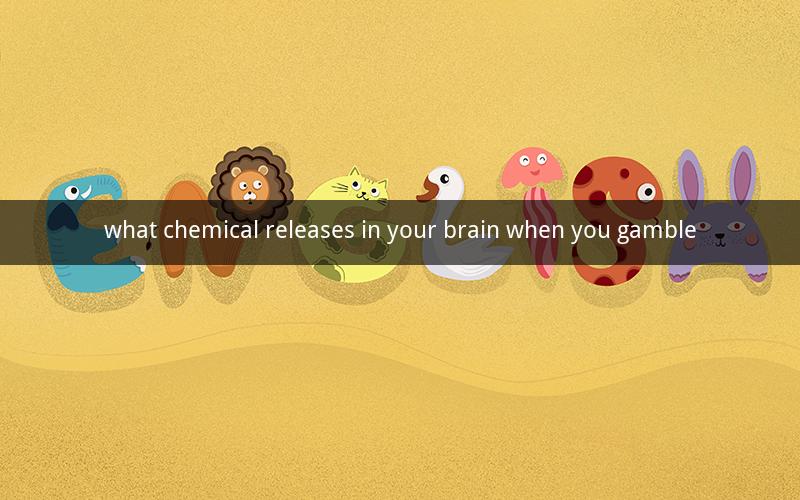
Table of Contents
1. Introduction to Gambling and Dopamine
2. The Science Behind Gamblers' High
3. The Role of Dopamine in the Brain
4. Chemical Release During Gamblers' High
5. Dopamine and Reward-Seeking Behavior
6. The Impact of Dopamine on Decision-Making
7. The Risks of Dopamine Over-activation
8. The Role of Serotonin in Counteracting Dopamine
9. Strategies to Manage Dopamine Release
10. Conclusion
1. Introduction to Gambling and Dopamine
Gambling is an activity that has captivated the human race for centuries. It involves the risking of money or other valuable items on an uncertain event with the hope of winning a prize. The thrill of the unknown, the potential for a big win, and the psychological rush that comes with it are some of the reasons why gambling is so appealing. However, what happens in the brain when we engage in this risky behavior?
2. The Science Behind Gamblers' High
When individuals gamble, a complex interplay of neurotransmitters in the brain is activated. One of the most significant neurotransmitters involved is dopamine, a chemical that plays a crucial role in pleasure, reward, and addiction.
3. The Role of Dopamine in the Brain
Dopamine is a neurotransmitter that is released in the brain's reward pathway when we engage in activities that are pleasurable or rewarding. This includes eating, exercising, and, for some, gambling. Dopamine is responsible for the "feel-good" sensation that we experience when we achieve a goal or receive a reward.
4. Chemical Release During Gamblers' High
When a person engages in gambling, the brain releases dopamine in anticipation of a potential win. The anticipation of winning creates a surge of dopamine that is released into the brain's reward system. This surge of dopamine creates a sense of euphoria and excitement, which is often referred to as the "gamblers' high."
5. Dopamine and Reward-Seeking Behavior
The release of dopamine during gambling reinforces the behavior, making individuals more likely to seek out similar experiences. This is because the brain's reward system is designed to encourage behaviors that are beneficial for survival, such as eating and reproduction. However, when it comes to gambling, the reward is not always guaranteed, leading to a potentially addictive cycle.
6. The Impact of Dopamine on Decision-Making
Dopamine not only affects feelings of pleasure but also plays a role in decision-making. When dopamine levels are high, individuals may be more prone to taking risks and making impulsive decisions. This can be particularly dangerous in the context of gambling, where the potential for loss is high.
7. The Risks of Dopamine Over-activation
While dopamine is a vital neurotransmitter, excessive release can lead to negative consequences. Over-activation of the dopamine system can lead to addiction, as the brain becomes dependent on the surge of dopamine that comes with gambling. This can result in significant financial, social, and psychological problems.
8. The Role of Serotonin in Counteracting Dopamine
Serotonin, another neurotransmitter, can help counteract the effects of dopamine. It is often referred to as the "feel-good" neurotransmitter and can help reduce feelings of anxiety and depression. Maintaining a balance between dopamine and serotonin is crucial for overall mental health.
9. Strategies to Manage Dopamine Release
There are several strategies that can help manage dopamine release and reduce the risk of addiction. These include:
- Mindfulness and Meditation: These practices can help individuals stay grounded and reduce the urge to gamble.
- Setting Limits: Establishing and sticking to a budget can help prevent overspending and the escalation of gambling behavior.
- Seeking Support: Joining a support group or seeking professional help can provide individuals with the tools they need to overcome addiction.
10. Conclusion
The release of dopamine in the brain during gambling creates a powerful psychological and physiological response. While the initial high can be exhilarating, the potential for addiction and negative consequences cannot be ignored. Understanding the science behind gambling and the role of dopamine can help individuals make informed decisions and seek help if needed.
---
Questions and Answers
1. Q: What is the primary neurotransmitter involved in the "gamblers' high"?
A: Dopamine is the primary neurotransmitter involved in the "gamblers' high."
2. Q: How does dopamine affect decision-making during gambling?
A: Dopamine can make individuals more prone to taking risks and making impulsive decisions.
3. Q: Can serotonin help counteract the effects of dopamine?
A: Yes, serotonin can help counteract the effects of dopamine by reducing feelings of anxiety and depression.
4. Q: What are some strategies to manage dopamine release and reduce the risk of addiction?
A: Strategies include mindfulness and meditation, setting limits, and seeking support.
5. Q: Is it possible to become addicted to dopamine?
A: Yes, excessive release of dopamine can lead to addiction.
6. Q: How does the brain's reward system influence gambling behavior?
A: The brain's reward system is activated when gambling, leading to the release of dopamine and reinforcing the behavior.
7. Q: Can gambling lead to financial problems?
A: Yes, gambling can lead to significant financial problems if not managed properly.
8. Q: What is the role of anticipation in the release of dopamine during gambling?
A: Anticipation of a potential win activates the brain's reward system, leading to the release of dopamine.
9. Q: How can individuals reduce the urge to gamble?
A: Individuals can reduce the urge to gamble by setting limits, engaging in alternative activities, and seeking support.
10. Q: Is it normal to experience a surge of dopamine when gambling?
A: While it is normal to experience a surge of dopamine, excessive release can lead to negative consequences such as addiction.